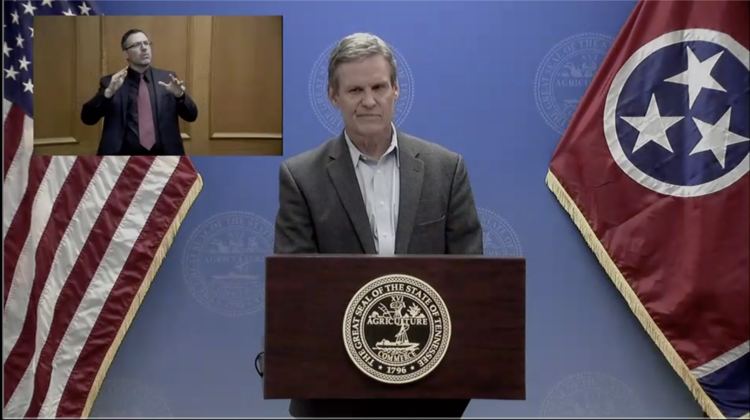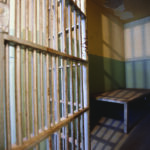

Gov. Bill Lee closed non-essential businesses and strongly urged Tennesseans to stay at home during his daily press conference Monday.
He was expected to issue a statewide safer-at-home order – after thousands of doctors across the state have reportedly urged him to do so – but instead reinforced previous guidelines he believes will “better our approach to social distancing while also protecting the livelihoods of Tennesseans.”
“This is not a mandated shelter-in-place order because it’s deeply important to me we remain a state that protects personal liberties,” he said, “but it is a strong urging for Tennesseans to stay home when at all possible. I also believe with personal liberty comes personal responsibility.”
More than half of state is already under some form of safer-at-home order. Lee’s new measure implements safer-at-home guidelines for every county.
On Monday, the Tennessee Department of Health reported more than 1,800 confirmed cases. Shelby and Davidson counties lead with 396 and 364, respectively. Thirteen people across the state have died, including one person from Shelby County.
Memphis issued a safer at home order on March 23. Similar statewide orders have been issued in Nashville and Knoxville as well as in 30 states, including Virginia, Kentucky and North Carolina, all of whom share borders with Tennessee.
“We’re all taking the health of all Tennesseans very importantly. We want a health Tennessee, we also want a healthy economy, but that only happens when we keep Tennesseans healthy,” said speaker Cameron Sexton.
To do so, Lee added to the list of non-essential businesses ordered to close until April 14.
What are non-essential businesses?
Lee’s Executive Order 21 amends a previous order to close beauty and barber shops, nail salons and gyms/fitness centers, adding spas, body art and tattoo services, tanning salons, massage therapy services, night clubs, bowling alleys, arcades, concert venues, theaters and performing arts centers, race tracks, indoor children’s play areas, adult entertainment venues, amusement parks and roller or ice skating rinks to the businesses considered non-essential right now.
“This announcement substantively changes activities,” Lee said, calling it similar to the directives of other areas. “We’re closing non-essential business in every county while still maintaining the operation of essential businesses.
Of those who are employed by non-essential businesses, Lee said, “We are encouraging them to have no reason to travel.”
So what’s essential, then?
Basically, everything else is essential, according to Executive Order 22. The list, which is an attachment to the order covers everything from healthcare to day care centers, public works, first responders and court employees, farmer’s markets, liquor stores, animal shelters, food banks, churches, news-gathering organizations, gas station attendants and bicycle shops, banks and insurance companies, hardware stores, HVAC companies, mail and package delivery, schools for the purpose of facilitating distance learning, laundromat and dry cleaners, restaurants for off-premises consumption only, office supply stores, firearm and ammunition suppliers, transportation, home-based care for seniors, accounting and real estate services, manufacturing and distribution for supply chain, hotels and motels, funeral services and more.
Cases are on the rise
On Monday, the Tennessee Department of Health reported more than 1,800 confirmed cases. Shelby and Davidson counties lead with 396 and 364, respectively. Thirteen people across the state have died, including one person from Shelby County.
Tipton County reported 16 cases Monday. The first drive-thru testing site is now open at the health department.
Thirty-three remote testing facilities in rural communities have been opened in the last week.
Lee said Tennessee is testing more people per capita than other states, calling the data more reliable than others.
“We are aggressively pursuing testing. The more aggressively you test, the more you know and the more you can make targeted responses that are specific.”
Coronavirus has made its way into the majority of Tennessee’s 95 counties.
“The speed with which this virus is moving into rural counties is concerning. There are 77 counties at least one confirmed case. The fact that it’s moving into rural counties is very disconcerting to me,” he said. “I’m concerned about the economies, rural communities more hard hit when we have downturns in the economy.”
Lee said closing more non-essential businesses and reinforcing the president’s social distancing guidelines will help put Tennesseans back to work.
“It’s a two-component executive order. I think it sends a strong message to Tennesseans … I’ve said all along we’ve got to help mitigate the spread of this disease and help protect our economies and I think this executive order will do just that.”






Leave a Reply